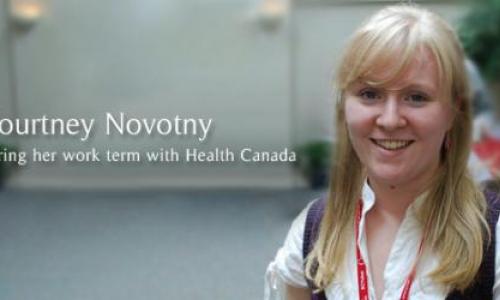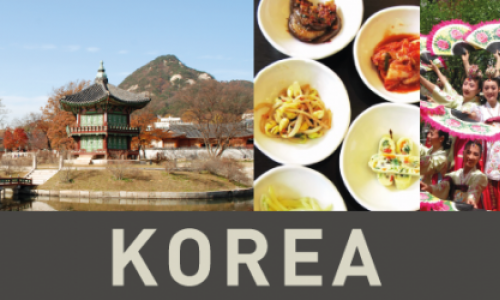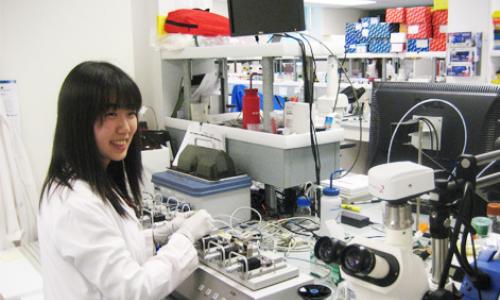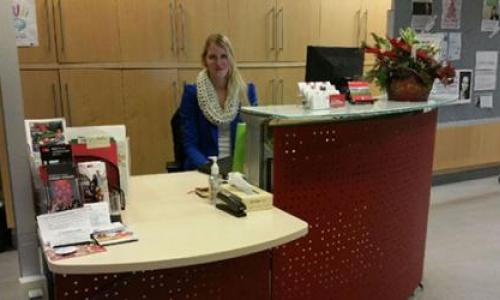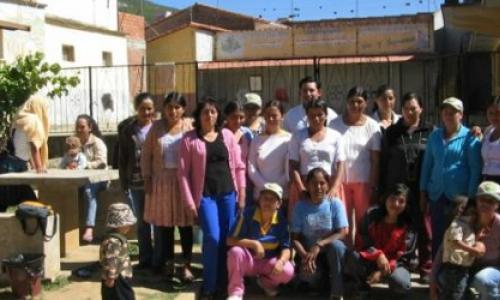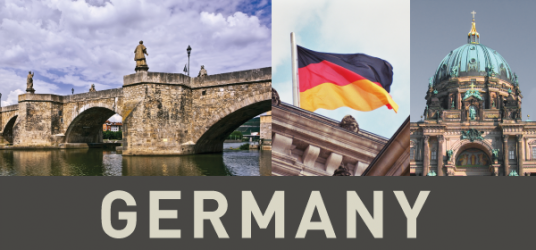
"Knowing is not enough; we must apply. Willing is not enough; we must do.”
- Johann Wolfgang Von Goethe, German Poet
Capital: Berlin
Currency: Euro
Work and live in Germany, where fresh baked goods and sausages wake you up in the morning, new and exciting experiences await you and monuments filled with centuries of history beam at you as you make your way to work.
“I can confidently say that I came away from the experience feeling very positive and excited about all the possibilities that are open to me after my undergraduate degree”.
- Elena Barbir, Chemical Physics Major
RISE program
“I had the experience of being fully immersed in a different culture and language that I was not all that familiar with. This was rewarding in that it has given me a totally new perspective on different cultures and lifestyles and now that I have returned, how I view living in Vancouver. I am so grateful I have had this opportunity!”
- Katelyn Mueller, Molecular Biology & Biochem Major
RISE Program, 2008 CAFCE Co-op Student of the Year Nominee
Different cultures have different work etiquettes and nuances. Most workplaces in Germany have a more formal and conservative atmosphere. When immersing in your co-op work term placement, it is important to adhere to the cultural expectations.The following information is from the Canadian Intercultures website. For more details, click here.
-
Attire: Dress code is discreet, conservative and professional. It would be safer to wear formal clothes for the first day, then observe and adjust for the next time.
-
Greetings: Colleagues and supervisors should be addressed with ‘Sie/Ihnen’ form, followed by their last name. Strangers should be addressed with titles (Herr and Frau or Mr. and Ms.) followed by their last name. First name should not be used until a friendship has been established and a request to call someone by his or her first name is made.
-
Punctuality: This means honesty and is of the utmost importance in the German business environment. If you expect to be delayed, telephone immediately and offer an explanation.
-
Feedback: Usually conducted formally, at the end of the year or the term. However, it is still acceptable to ask about your performance and how you can improve.
-
Time Management: When the business day ends, you are expected to leave the office. If you must remain after normal closing, it indicates that you did not plan your day properly.
-
Hierarchy: Larger companies have a hierarchy, which means final decisions are made by a higher authority. Deferring decisions to a higher management is also appreciated in a hierarchal office setting.
-
Commitment: Loyalty and commitment to a company and its employers is important. Job satisfaction and inspiring your colleagues can be considered one of the most significant things in a German workplace
The following are some past Co-op employers that have hired SFU students. Check with the International Co-op office for other previous employers.
-
Volkswagen
-
BMW Group
-
Siemens AG
-
Continental Auto Group
-
Daimler AG
The German Academic Exchange Service (DAAD) is a publicly-funded independent organization of higher education institutions in Germany. The 14 international offices provide information and financial support to over 50,000 highly-qualified students and faculty per year, for international research and study.
RISE (Research Internships in Science and Engineering) is a summer internship program for undergraduate students from the United States, Canada and the UK in the fields of biology, chemistry, physics, earth sciences and engineering. It offers unique opportunities for undergraduate students to work with research groups at universities and top research institutions across Germany for a period of 2 to 3 months during the summer.
-
Germany has over 300 kinds of bread!
-
There are more than 150 castles in Germany! There are a few that contain aristocrats but most are hotels, restaurants and ruins.
-
Gummy bears were invented by a German man- Hans Riegel!
-
Football (soccer) is the most popular sport in Germany.
-
The Fairy Grottoes (Feengrotten) in Saalfeld, Thuringia are the world’s most colourful caves, according to the Guinness Book of Records
-
The biggest festival is called Oktoberfest, but starts in September.
-
Taxis in Germany are Mercedes
-
German cuisine is an ensemble of regional dishes such as smoked sprats (small fish), white sausage, matjes (pickled herring),sauerbraten (roast beef marinated in vinegar and wine), bratwurst and, of course, sauerkraut.
-
Germans are also famously fond of beer – they have 5,000 different brands! Germany has some of the best and oldest breweries in the world, with ingredient purity laws dating back to 1516.
-
Germans also enjoy many different types of bread, such as rye wheat (roggenmischbrot), whole grain (vollkornbrot), wheat rye (weizenmischbrot), multigrain (mehrkornbrot), onion bread (zwiebelbrot) and pumpkin seed bread (kürbiskernbrot).
Traveling and exploring is part of the co-op experience! Here are some attractions and sights that are well-known and breathtaking:
-
Remains of the Berlin Wall
-
The Brandenburg Gate
-
Unter den Linden street and Museum Island located in the Mitte
-
Kreuzberg and Schöneberg districts
-
The lesser-known districts in Prenzlauer Berg and Friedrichshain in the eastern part of the city
-
The Black Forest near Heidelburg
-
Port of Hamburg, Munich, Colgne and Frankfurt
Auf Wiedersehen!
Beyond the Blog
-
Interested in pursuing an international co-op work term? Find out more on the International Co-op website.









